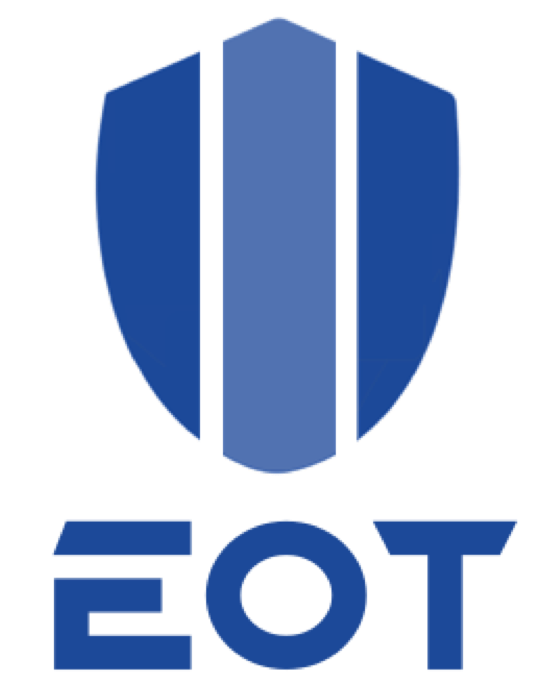- marketing admin
- Articles
Navigating the Industrial Internet of Things (IIoT): Unraveling the Benefits and Challenges of Cloud Adoption
The Industrial Internet of Things (IIoT) has emerged as a transformative force, revolutionizing how industries operate and manage their processes. At the heart of this evolution is the adoption of cloud computing, offering a myriad of benefits while presenting unique challenges. This article delves into the intricate landscape of cloud adoption in IIoT, exploring the advantages that propel industries forward and the challenges that demand thoughtful consideration.
Benefits of Cloud Adoption in IIoT
Enhanced Data Accessibility and Scalability:
- Cloud adoption in IIoT facilitates seamless data accessibility from anywhere, enabling real-time monitoring and analysis. The scalability of cloud infrastructure allows industries to effortlessly accommodate growing volumes of data generated by connected devices, ensuring a robust foundation for future expansion.
Real-Time Analytics for Informed Decision-Making:
- Cloud-based IIoT platforms empower industries with real-time analytics, providing actionable insights into operations. This capability is instrumental in making informed decisions promptly, optimizing processes, and identifying opportunities for efficiency improvements.
Cost Efficiency and Resource Utilization:
- Leveraging cloud services eliminates the need for extensive on-premises hardware, reducing capital expenditures. Industries can adopt a pay-as-you-go model, optimizing resource utilization and minimizing costs associated with maintaining and upgrading infrastructure.
Global Connectivity and Collaboration:
- Cloud adoption fosters global connectivity, enabling seamless collaboration across geographically dispersed industrial facilities. With data stored in the cloud, teams can collaborate in real-time, enhancing communication, and sharing insights that contribute to improved overall efficiency.
Rapid Deployment of IIoT Solutions:
- Cloud platforms offer a streamlined environment for the rapid deployment of IIoT solutions. This agility allows industries to quickly implement new technologies, experiment with innovative approaches, and stay ahead of the curve in a dynamically evolving technological landscape.
Challenges of Cloud Adoption in IIoT
Security Concerns:
- Security is a paramount concern in IIoT, and entrusting sensitive data to the cloud introduces new challenges. Cybersecurity threats, such as data breaches and unauthorized access, necessitate robust security measures to safeguard critical information and protect against potential disruptions to industrial processes.
Data Privacy and Compliance:
- Industries must navigate a complex landscape of data privacy regulations and compliance standards. Transferring data to the cloud requires a meticulous approach to ensure adherence to industry-specific regulations, safeguarding against legal implications and maintaining the trust of stakeholders.
Latency Issues Impacting Real-Time Applications:
- While cloud infrastructure facilitates real-time analytics, latency issues may arise, particularly in applications demanding ultra-low latency. Industries relying on instantaneous decision-making, such as in critical control systems, must carefully evaluate the impact of latency on performance and responsiveness.
Dependency on Internet Connectivity:
- Cloud-based IIoT solutions rely heavily on internet connectivity. Any disruptions to internet services may impact the real-time nature of IIoT applications, potentially leading to downtime and hampering operational continuity. Redundancy measures and contingency plans are essential to mitigate the risks associated with connectivity issues.
Integration Challenges with Legacy Systems:
- Many industrial facilities operate with legacy systems that may not seamlessly integrate with cloud platforms. The process of migrating and integrating these systems with cloud-based IIoT solutions can be complex, requiring careful planning and consideration of interoperability challenges.
Initial Implementation Costs:
- While cloud adoption promises long-term cost efficiencies, the initial implementation may involve significant upfront costs. Industries need to carefully assess the return on investment (ROI) and weigh the initial expenses against the anticipated long-term benefits of migrating to cloud-based IIoT solutions.
Addressing Challenges for Successful Cloud Adoption in IIoT
Comprehensive Security Measures:
- To mitigate security concerns, industries must implement robust cybersecurity measures, including encryption, multi-factor authentication, and continuous monitoring. Regular security audits and updates are crucial to stay ahead of emerging threats and ensure the resilience of IIoT systems.
Adherence to Data Privacy Regulations:
- Industries must establish clear data governance policies, ensuring compliance with regional and industry-specific data privacy regulations. This involves transparent communication with stakeholders regarding data handling practices, fostering trust and compliance.
Hybrid Cloud Approaches:
- Adopting hybrid cloud approaches allows industries to balance the benefits of cloud computing with the need for localized control. This approach enables critical applications to operate on-premises, addressing latency concerns and ensuring operational continuity even in the absence of internet connectivity.
Investment in Training and Skill Development:
- Addressing the challenge of integrating legacy systems involves investing in employee training and skill development. Ensuring that the workforce possesses the necessary expertise in cloud technologies and integration methodologies is essential for a smooth transition.
Collaboration with Cloud Service Providers:
- Collaborating with experienced cloud service providers can alleviate some of the challenges associated with cloud adoption. These providers offer expertise, support, and infrastructure that can streamline the migration process and ongoing management of cloud-based IIoT solutions.
So, cloud adoption in the Industrial Internet of Things is a double-edged sword, offering unparalleled benefits while presenting a set of challenges that demand strategic planning and proactive mitigation strategies. As industries navigate this transformative journey, the key lies in striking a balance between harnessing the power of the cloud for enhanced efficiency and addressing the challenges to ensure the security, privacy, and reliability of IIoT systems. By doing so, industries can unlock the full potential of cloud-based IIoT solutions, paving the way for a connected and optimized industrial landscape.





